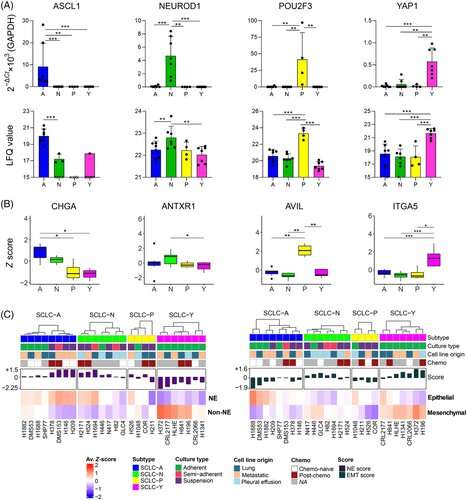New approaches to personalized treatment for small cell lung cancer

Small cell lung cancer (SCLC) is a particularly aggressive tumor, which has so far been treated with standardized measures. A study led by MedUni Vienna has shown for the first time that different SCLC subtypes have specific molecular characteristics, which is why those affected respond in different ways to cancer treatment. This discovery, published in the Clinical and Translational Medicine journal, has opened up new options for the development of more personalized treatment for this cancer, which is characterized by an unusually high rate of mortality.
Earlier this year, a study by an international team of scientists led by MedUni Vienna indicated that small cell lung cancer (SCLC) is not a homogeneous type of cancer but is rather characterized by four subtypes that respond differently to treatment measures. The researchers from Austria, Hungary, Brazil, Sweden and the Netherlands are highlighting that a single treatment method for SCLC is not effective with their current follow-up project. Rather, the results of their comprehensive analyses provide the basis for new treatment approaches that can be tailored to the specific molecular characteristics of the respective subtypes.
Specific proteins for targeted treatment
In order to generate these results, the scientists analyzed the entire protein composition (proteome landscape) of human SCLC cell lines. Using their selected proteomic approach in combination with bioinformatic analyses, they achieved large-scale identification and quantification of proteins and ultimately the determination of specific molecular signatures for each subtype.
"The analytical approach we chose enabled us to quantify more than 10,000 proteins, several of which proved to be specific to a particular subtype," explained study co-leader Karin Schelch from MedUni Vienna's Department of Thoracic Surgery. "These subtype-specific proteins provide an excellent basis for the development of targeted SCLC treatment."
Molecular signature as diagnostic marker
Small cell lung cancer affects about 15% of lung cancer patients. This particularly aggressive tumor, which usually occurs in smokers, grows rapidly, has a high propensity for metastasis and a high mortality rate.
"Since conventional treatment for SCLC has reached its efficacy plateau, new personalized treatment interventions are required to improve survival rates," said study leader Balazs Döme from MedUni Vienna's Department of Thoracic Surgery, head of the Translational Thoracic Oncology Program.
Some of the new subtype-specific proteins identified in the study can be used not only as treatment targets but also as diagnostic markers.
More information: Beáta Szeitz et al, In‐depth proteomic analysis reveals unique subtype‐specific signatures in human small‐cell lung cancer, Clinical and Translational Medicine (2022). DOI: 10.1002/ctm2.1060




















